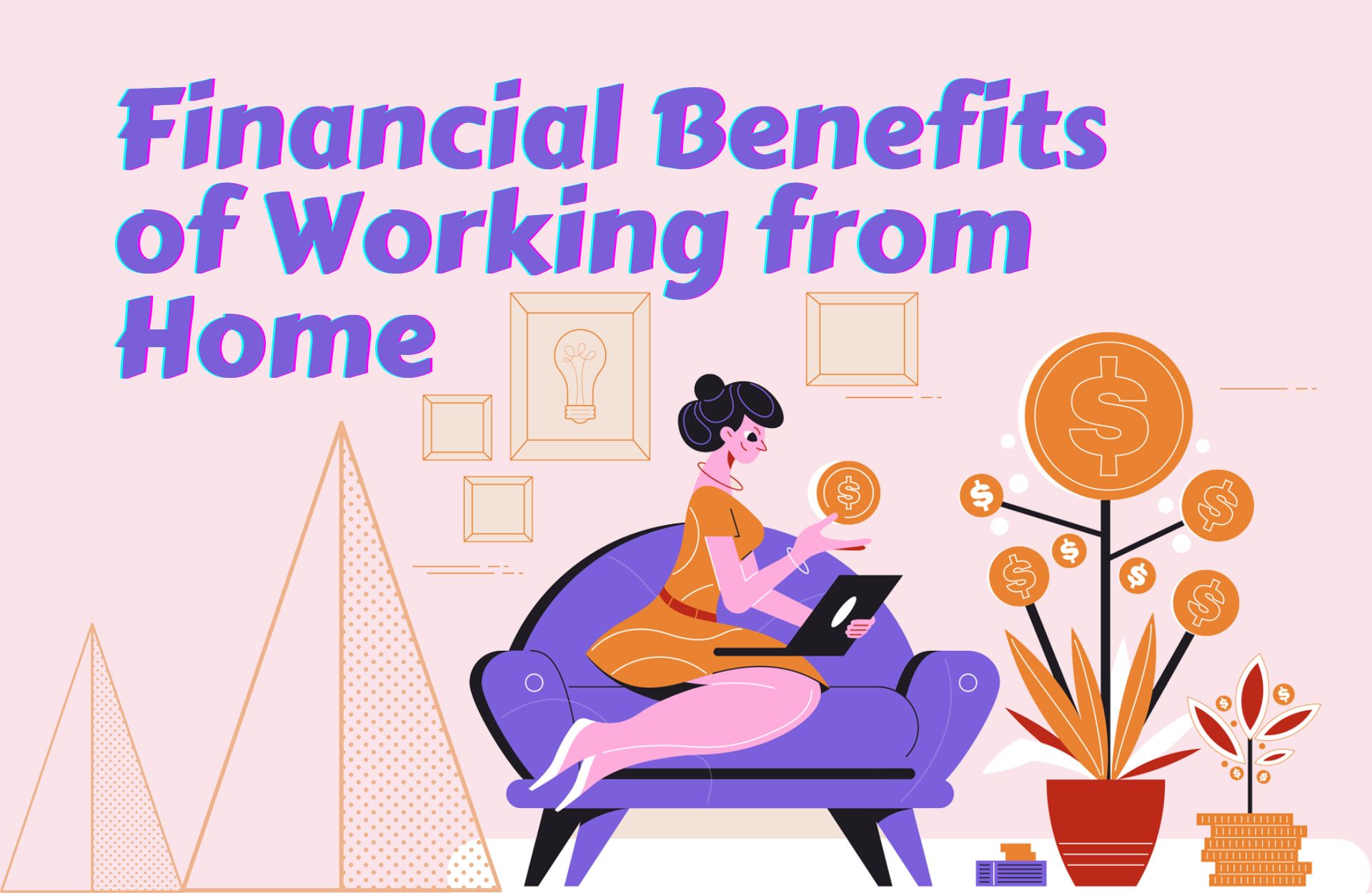Remote work: The latest trend everyone’s talking about. But do employees really like the idea of working from the comfort of their own homes (or the local coffee shop)? Well, this is a complicated question.
Some people may thrive in a remote work environment because of the added flexibility and opportunity to avoid the drudgery of the daily commute. However, others may struggle with the isolation and constant distractions of home life. It’s like a choose-your-own-adventure book, but instead of dragons and treasure, it’s isolation and distraction.
In this article, we take a deep dive into what people love to hate about remote work. We’ll examine the good, bad, and ugliness of remote work and try to determine who might thrive in this environment and who might struggle. For those of you already in the remote work game, we’ll provide tips and tricks for staying productive, managing distractions, and maintaining a healthy work-life balance. So whether you’re already a remote worker, a manager considering implementing remote work, or just curious about the topic, read on for some valuable insight into the fascinating world of remote work.
Who likes remote work and who doesn’t?
Remote work, a hot topic, divides the crowd into two categories: those who love it and those who hate it. It’s a love-hate relationship, one man’s paradise is another’s hell. The pros and cons of working remotely are as different as night and day, depending on a variety of factors including job type, personality, and work style.
It’s a virtual utopia for those embracing remote work. They bask in the freedom and flexibility it offers, like birds soaring through the sky. They enjoy the comfort of their own home and reduced commute time that would be anyone’s envy.
But for others, remote work is a bleak, lonely existence. It’s like a hamster running in a wheel, constantly trying to separate work from home life, but never quite succeeding. These remote workers are exhausted and burned out, and feelings of loneliness and isolation can also affect their mental health. Let’s not forget the technical difficulties and distractions that can make remote work feel like a never-ending game of whack-a-mole.
In the end, remote work is best for those who are self-motivated, disciplined, and able to work independently, like a lone wolf. But even the most self-sufficient among us can struggle to adjust to remote work, requiring adaptation and adjustments to make it work. So whether you’re a remote worker, a manager, or just interested in the subject, be aware of the challenges and rewards of remote work.
Employee preferences
Some employees love the confines of a traditional office environment, obsessing about structure and socializing like a drowning man is to a lifeguard. Meanwhile, others have embraced the Wild West of remote work, soaring through the skies like birds that thrive on flexibility and freedom.
So, what factors would make someone prefer one over the other? Let’s take a look at the main factors affecting remote work.
Job Type
Some jobs are only designed for remote work, like a hand in a glove. For example, more solitary jobs like writing, programming, or designing are like free birds that can fly away from the office. However, jobs that require a more human touch, such as sales or customer service, are like birds in a cage, unable to spread their wings in a remote work environment.
How you work
For those who prefer to work alone, remote work is the perfect opportunity to hide in a retreat. But for those who derive joy from their relationships, remote work can seem like a never-ending sentence of solitary confinement.
Personality
Some people are born to work from their own personal island, while others are social freaks who would rather be suffocated by the hustle and bustle of the office environment. If you’re an introvert, you probably enjoy the peace and quiet of remote work, unless you prefer to be constantly surrounded by the buzz and small talk of human interaction like the typical extrovert.
Home environment
You may ask, why work from the comfort of your home? Well, if your place of residence feels like a haven of tranquility in the countryside, working remotely might be a dream come true. But if you live in a bustling metropolis where the sounds of construction and traffic are never-ending, working remotely can be a nightmare! It all depends on whether you prefer to work in the tranquil retreat, or amidst the chaos of the city that never sleeps.
Family and personal life
Employees’ personal lives can make remote work a dream or a nightmare. For example, parents with young children may see remote work as the magical solution to the never-ending struggle of balancing work and family, but parents who live alone may find it a lonely, bleak experience.
Characteristics of remote work
It is important to understand several key characteristics of remote work, including,
Flexibility
Remote work is like the ultimate power trip, where employees hold the keys to their schedules and destinations. They can work from the comfort of their couch, on the beach, or even while skydiving (not recommended), as long as they get the job done. It’s a total win-win situation, or so it seems, with the added bonus of maintaining a work-life balance like a boss. The control is all theirs and the world is their oyster.
Independence
Remote workers are “the captains of their own ship” and only need the occasional lifejacket from their manager to chart a course for success. Without the constant interruptions and micromanagement of an office, these intrepid souls are free to unleash their creativity and take their productivity to new heights.
Reduced commute time
One of the most enjoyable aspects of working remotely? Take the hassle out of your daily commute. No more weaving through traffic or spending big bucks on gas and transportation. Sure, you might need to wake up early to start your workday, but think about all the extra nap time you’ll accumulate. What about the cherry on top? Smaller carbon footprint because who needs fresh air and exercise?
Personalized work environment
Remote workers have the ability to turn their home into their own personal work haven, with custom-made desks, chairs, and maybe even mood lighting. It’s like they have their own personal set designer just to make their working environment as comfortable as possible. (Who needs to see the outside world anyway?)
Improved work-life balance
Remote work is the solution for the elusive unicorn of work-life balance! Or at least, that’s the sales pitch. You know, instead of trudging through your daily commute and sacrificing quality time with your loved ones, you can now work in comfy pajamas and still be productive…unless, of course, the cat decides to join you on a conference call. You may also like to know: How to Achieve Work-Life Balance When Work Remotely
Increased accessibility
Remote work is a great equalizer, leveling the playing field for people who are disabled or have nowhere else to go. They no longer have to fight for a seat on the bus or fight traffic to get to the office. By working remotely, they finally have the opportunity to show the world what they’re made of and bring some much-needed diversity to the singular corporate world.
Technology dependency
Working remotely often requires a reliable internet connection and the use of technology, such as video conferencing, project management tools, and cloud-based software. This can lead to increased reliance on technology, and the need for technical skills and knowledge. Useful article: The Essential Pack of Remote Working Tools
Isolation and loneliness
The downside of working remotely is like being stranded on a deserted island with only your thoughts and devices around. This can lead to feelings of alienation from your colleagues and make you nostalgic for the good old days of water cooler chats and office gossip. So, if you like being a lone survivor in a digital world, remote work is for you! You may also like to know: How to Overcome Loneliness as a Remote Worker
Let’s not forget: There’s a lot of “you’re on your own” mentality in this situation, which can be exciting or scary depending on your personality!
Impact of remote work on different job types
The joys of working remotely! One size certainly doesn’t fit all, which is why it’s important to consider the unique complexities of each job type. Because let’s face it, some jobs are better suited to remote work than others, and others aren’t as good as being done on the moon. Different strokes for different folks, right? Here are a few examples of how remote work affects different job types.
Knowledge Workers
Jobs that require a hermit-like presence, like software development, writing, and research, are better off being done in the comfort of a bunker. These workers often have the gadgets and gizmos they need to be productive in any dark corner, plus the flexibility to structure their workday in the middle of the night if they choose.
Creative workers
Jobs in creative fields such as graphic design and advertising can now enjoy working from home. Gifted with “freedom,” these employees can work from their childhood fort or the local coffee shop, and can draw “inspiration” from their cats walking on keyboards, leading to unprecedented levels of “creativity” and “Innovation” level.
Customer service and support
Jobs that require you to talk to angry customers all day, such as customer service and support, can come as a surprise when you’re stuck working from home. These employees may need a straight jacket and a therapist to stay sane, and may be forced to work 24/7 in the sun to make sure clients get help they didn’t even want in the first place.
Sales
Jobs that involve dealing with angry customers, such as customer service and support, are a test of patience even in the calmest of environments. Selling personas is like a game of Jenga, one wrong move and the whole thing falls apart. For salespeople dealing with local customers, working remotely can be the equivalent of playing with a chainsaw blindfolded. On the other hand, salespeople who focus on selling virtually may find remote work a breeze, with all the convenience of technology at their fingertips.
Team-based roles
Jobs that involve interdependence with a group of people, such as project management and product development, can be a real circus act for remote management. These employees may have to rely on technology to mimic human interactions and pretend they’re not just talking to themselves all day, and may need rigorous routines and procedures to remember that they’re not actually stranded on a desert island.
Manual labor
Jobs that require you to sweat and get your hands dirty, like construction and manufacturing, are almost the exact opposite of remote work. These workers can’t just teleport themselves to the job site, they need to be there in person to get the job done right. It’s like trying to bake a cake with your idea, it just won’t work.
Worth reading: These are the Top 10 reasons people want to work remotely
Conclusion
All in all, remote work is like fitting a square peg into a round hole, it just doesn’t work for everyone. Some employees embrace it like a long-lost love, cherishing the freedom, independence, and work-life balance it brings, while others miss the drama, human interaction, and structure of the office like a lost puppy. Remote work success is a complex equation, with variables such as job type, personal and professional life, and work preferences all playing a role. Managers need to understand these variables and view remote work as a bespoke suit that is tailored to meet the unique needs of employees and organizations. By taking a proactive and tailored approach, managers can ensure their employees find joy and success in remote work and capitalize on this rapidly growing trend.






